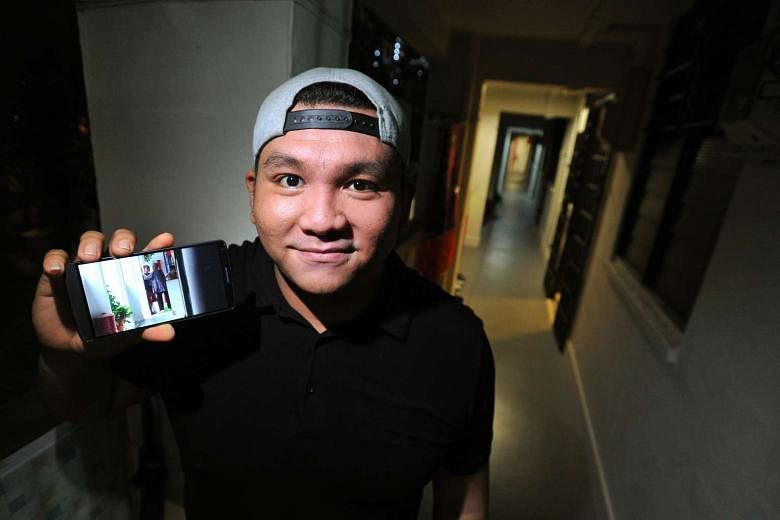What I learnt from my expensive education in Harvard's Kennedy School of Government 10 years ago (kindly paid for by my employer, Singapore Press Holdings) can be distilled into two axioms, as summarised by my delightful professors there.
The first is that the answer to most of life's issues - whether policy, political or personal - lies in two words: It depends.
After all, as policy wonks know, what makes for good policy depends a lot on assumptions, objectives and desired outcomes.
The second is that when faced with a problem that needs fixing, there is no point turning to the marketplace, the state or the community for help. Because, in the end, there is no marketplace, state or community. There is only you and me, who make up all of the above. Rather than point the finger at someone else, or expect another party to step up, we realise, after a while: There's just us.
So when a few people realised that a truck had tipped over in Bendemeer Road on Wednesday, trapping a man underneath, they rushed to use their bare hands to lift the truck.
Others, seeing the commotion, joined in. And, just like that, with no hoist, just brute strength, the bunch of people passing by tilted the truck and pulled a young man to safety.
They didn't stand around waiting for help. They stepped forward.
Another cheering story went viral that day.
A couple were on their way to work from their Bukit Panjang home when they chanced upon a woman lying on the floor, in labour. Her water bag had burst. Her husband tried frantically to call a cab from his mobile phone, but couldn't get one.
So Mr Syed Zukarnain and his wife Reena did what any good neighbours would: They asked the couple in need to get into their car and drove them to hospital.
Baby was impatient, and came into the world in the back seat of the car before they managed to get to the hospital. Baby and mother were cared for by hospital staff on arrival, and both are reportedly well.
Two incidents in one day, captured in video or photos and Facebook. Reading the news about these incidents as they went viral on Wednesday night, I found myself going to bed with a renewed cheer and sense of hope for Singapore.
Last August, a similar story from Australia had gone viral. Commuters lifted a train to help free a man trapped underneath a platform in Perth. I remember reading that article and discussing it with friends, wondering wistfully if Singaporeans would be so spontaneously public-spirited.
We got our answer last week.
The Straits Times put the story of the 30 people who tipped the truck on its front page on Thursday morning, and the story of the couple who helped deliver the baby on the front cover of its Home section. I wasn't involved in those decisions, but applauded them. Because heartwarming news - the kind of stories that warm your heart and make the more susceptible among us tear up with emotion - is the lifeblood of a community.
Good news, and community news about people helping each other, helps bond us as a people.
To be sure, tragedy can also bring a people together - think of the week-long period of mourning when Mr Lee Kuan Yew died, and the sense of grief over the schoolchildren who died in the Sabah quake.
But, at a time when social media gets a lot of flak and netizens are routinely scolded for being trolls and harpies, it was nice to see social media being used to spread happy stories and good news.
As we celebrate Singapore's 50th year of Independence next month, my wish for Singapore is that we learn to look out for one another wherever we are, and that we don't hesitate to step forward to offer help.
The bystanders in Bendemeer Road instinctively rushed to help. Perhaps there was a leader or two among them: people who took the lead to marshal resources and to call out for help.
In this case, the so-called bystander effect, when many people see something and no one takes action, did not happen. Instead, bystanders became participants and saviours.
What can turn a bochap (can't be bothered, in Hokkien) bystander into someone who takes action to help? First, it takes sympathy.
You step up to help someone in pain or in need to help relieve him of it.
Last week, another case of a bystander who took action received much attention. A man with the Facebook account ApohTecky Numero had been seeing his neighbour abused by her own family members for months. He felt helpless to intervene in a domestic affair, and yet wanted to do something. He secretly filmed an episode when the woman's daughter slapped her, and uploaded it on Facebook with the hashtag #savethemakcik.
Second, it takes courage to step up. One risks rejection, ridicule and misunderstanding.
ApohTecky Numero took a risk in taking and sharing the video.
Indeed, he got some flak for not confronting the abusers, and for not taking action earlier. He had anticipated this, as he said on his Facebook page. He shared the video anyway, hoping to rally public opinion to shame the culprits into stopping. The police have said they are investigating the incident.
The truth is that he did what he thought best: He got evidence, which he then shared, hoping to help the woman.
Reena, who helped deliver the baby, overcame her fear of blood, and her anxieties over whether she was doing the right thing when the baby arrived, to help as best she could. In so doing, she chose to take some moral risks, rather than be a passive bystander.
Third, it takes a sense of responsibility and commitment to the community to step up. It requires people to think of a problem as my problem, or as our problem, not someone else's.
In Singapore, we often think of community in terms of family, kinship and social ties. We help and support family members, relations, friends, colleagues, people from the same ethnic or faith-based group.
We are less inclined to think of communities formed by sheer physical proximity: our neighbours, those on the same bus or in the same MRT cabin; or those congregating around an area at a certain time.
And yet that was what happened at Bendemeer Road on Wednesday.
From ST reports, it appeared the person trapped was a South Korean man. The man who took the video was Mr Foo, a Chinese man. A Malay driver nearby rushed to help. A Filipino design engineer called Dennis helped pull the man out, helped, he said, by an Indian man.
In those moments of crisis, a bunch of people who happened to be around the area at the same time formed a mini-community of sorts, regardless of race, language and religion; and, most vital of all, given the increasingly xenophobic tone of some online discussions, regardless of nationality.
Because, in the end, when the chips were down at Bendemeer Road, the folks couldn't look to the state, to the marketplace or to the community. They looked around and realised: There's just us.
And they stepped forward.
As some social media commenter put it: This is One Singapore in action.
To move from a bystander on the sidelines, to stepping forward to do your bit to help, requires a simple shift in mindset.
This is our home, our country.
If not us, who?
If we don't step forward to make a change, who will?
When a problem arises and a solution is wanting, there's no looking over one's shoulder.
There's just us.
SEE WHAT'S TRENDING, YOUR LETTERS


